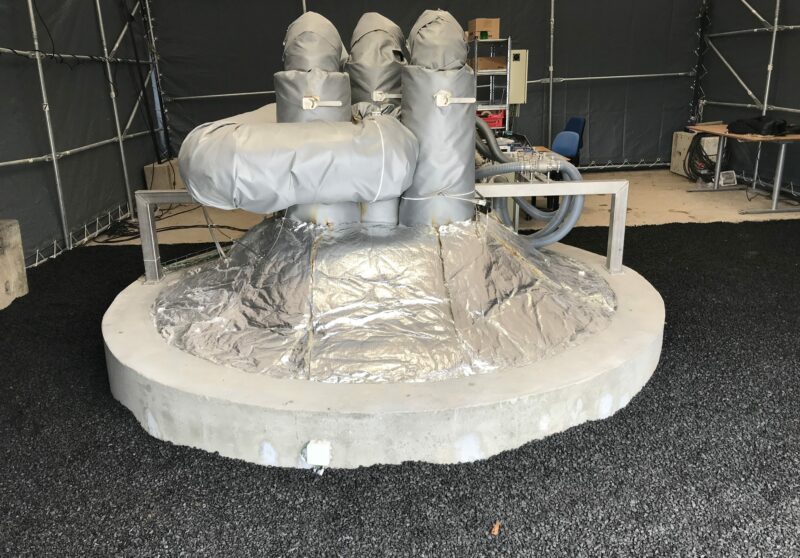Solution provider

We are a value-driven, multi-disciplinary engineering consultancy fundamentally committed to sustainable progress and service delivery.
Case
Energy storage
Smart cities
Smart energy systems
+1


We are a value-driven, multi-disciplinary engineering consultancy fundamentally committed to sustainable progress and service delivery.
Add the case to your visit request and let us know that you are interested in visiting Denmark
The energy storage consists of a ball-shaped steel capsule filled with stones. The stones are heated to 600 °C in temperature with large electric heaters powered by sustainable energy. Subsequently, the heat may be converted back to electricity using different types of energy systems.
The energy company, SEAS-NVE, being head of the project, hopes to develop a method for large-scale energy storage solutions based on the data from the test plant. With its 3.5 m3, size, the test storage at DTU Risoe is able to store an energy quantity corresponding to 875 kWh. This roughly equals the electricity consumption of a household with two adults and two children over a two-month period.
One of the goals of the test facility is to find suitable ways to upscale the energy storage to a larger test plant, to approximately 200,000 m3. Storage this size would be divided into cells, each capable of storing approximately 2.5 GWh. Twenty of these cells will be able to cover the annual energy consumption of approximately 9,500 households.
Large-scale energy storage solutions are becoming more and more relevant, because they may solve some of the challenges met by conventional electric power plants. The large energy storage units have the potential to accommodate consumers’ fluctuating electricity demands, even when renewable energy is not directly available. Sun, wind and waves come and go and do not necessarily meet the consumers’ demands. To be able to utilize renewable energy coming from these sources, energy storage will be necessary in the future in order to cover the energy demand.
As a consultant for SEAS-NVE, NIRAS coordinated the numerous ideas for design and prepared a final storage prototype, which can be scaled and complies with the technical requirements made for the final product.